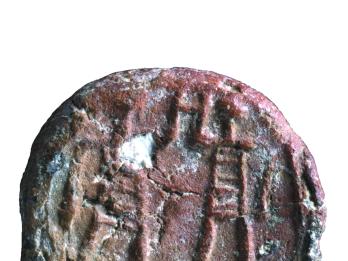Minute-Book
The Congregation of the Italian Jewish Community of Venice
1644–1711
On the Seating Places
Everyone shall sit in his place as of this day the way he sits and stands now, and no one may go out of his place where he sits on this day, and not drive away anyone from his place and not go out of his place, on pain of a fine of five ducats as above, and to be expelled from the council and from the congregation, and the cantor may not, on pain of a fine of five ducats, give him a mi sheberakh [a blessing from the pulpit]. And if, heaven forfend, someone should die after today and be brought to the cemetery, the six old and new parnasim [officers] together shall proclaim, by means of the beadle, immediately after the seven days of mourning have passed, who wants that place, and they will give it to someone remaining, according to at least four of them. But they should give particular consideration to his sons, if the place of the father is fitting for one of them, to give it to his son. And if they do not give it to his son, they shall give it to someone remaining among them as above, and a different place will be given to his son, as they see fit.
Except for the banca [bench] of the rabbis and elders, that is, from the ark to the window overlooking the courtyard and the field, no one is to be allowed, on pain of the fine, not anyone, to sit there, who is not sixty years old or more, even if he is the son of someone who used to sit there, and if, heaven forfend, he should die, but he may sit there if he is a rabbi or a ḥaver [“fellow”; a learned man].
Every householder who comes regularly to the synagogue will be required to pay for his seating place that he took and that he will take, whatever the parnasim arrange for him, who are appointed for the aforementioned order, and also now he will be required to pay as he paid until now.
No man, no matter who he is, may create any partition on the benches and seats in our synagogue to close off a special place for himself or for any grandfather, unless by permission of the council (on pain of the aforementioned fine), according to two-thirds of the remaining members. Any matter in the business of the places will be managed according to the explanation in the old part [of the regulations]. [ . . . ]
On the Melodies
Neither the cantor nor anyone else may say anything during a prayer even using another melody, unless in Italiano, except on Simḥat Torah, at a circumcision, wedding, or a bar mitzvah. And also at the time of reciting the imposti [taxes], every one shall be required to allow the greater amount to be announced, and to give way to one greater than he, with a fine to their father of five ducats, half of them to the community representative and half to the synagogue, which will be announced.
The cantor and the shamash [sexton] are obligated to obey the parnasim, and if one parnas decrees one thing, and another member of the council something else, they are required to obey the parnas, and if there is no parnas in the synagogue, they are required to obey the gabbai [beadle] of the synagogue.
Credits
Published in: The Posen Library of Jewish Culture and Civilization, vol. 5.



